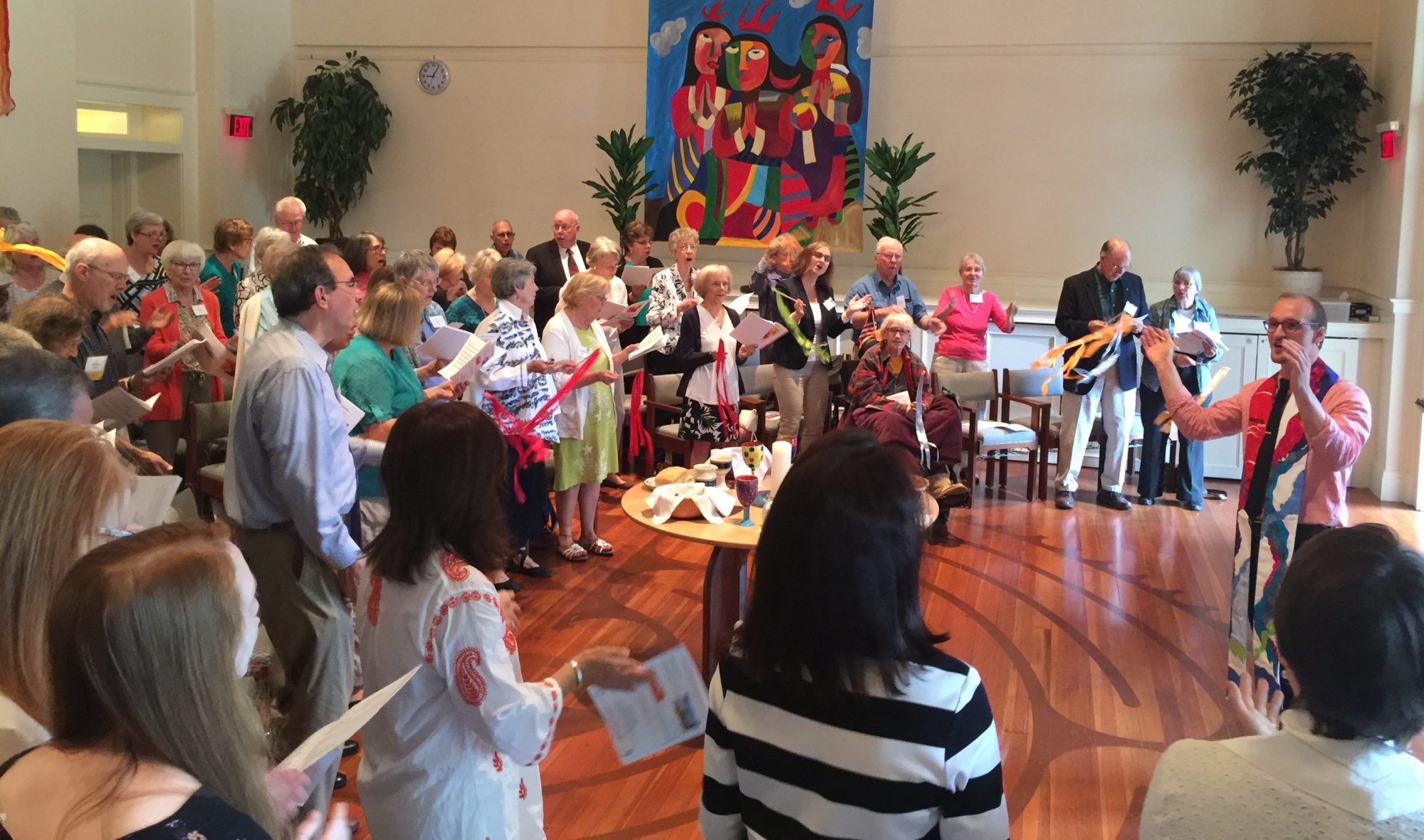[below is a reflection i wrote on the tenth anniversary of 9/11 about growing up in its aftermath]
As the tenth anniversary of 9/11 has come and gone, my brain has been flooded by images and stories from that fateful day. I have seen the haunting videos of the buildings going up in flames played and re-played (more times than I care to), and people scrambling frantically as they try to make sense of living in a reality almost completely foreign to most us. But, I have also been deeply moved by those who have responded to their great personal loss that day with difficult stories of moving forward in forgiveness.
It has all made me recall that ominous day 10 years ago for myself, as I have so many times before. I remember exactly where I was the moment the announcement came over the loud speaker – standing in my row about to stretch for phys. ed class. Just as often as I have thought about that day, I have wondered why I remember it with as much detail as I do – especially since, as a 7th grader, I specifically remember not having any idea of the significance of that morning’s events. What was the World Trade Center, anyways, I had thought? But, what I didn’t quite understand back then I have spent the rest of my life learning about, in both formal and informal settings.
The sad reality is that while these events initially seemed to unify our country, they soon revealed themselves to be a catalyst to an ugly realization: despite being an eclectic country of immigrants steeped in diversity since our very beginnings, we are too often uncomfortable with those who look, think, and speak differently than ourselves, and we allow this fear of the “other” to build walls between us. This truth pervades the ranks of Christians and non-Christians alike.
On the Daily Show the other night, Jon Stewart and his always hilarious news team satirically “remembered the day we forgot the lessons of the day we had sworn we would always remember.” That day was September 13, 2001. And as I sat there chuckling to myself, I was overcome by the reality of this satirical comment, stated succinctly in an article that I had read earlier that morning:
“I am the 9/11 generation.”[1]
Besides Bill Clinton’s infamous ordeal with Miss Lewinski, I have very little recollection of anything in the political realm before the wars of the past decade sparked by that day – both the ones we’ve been fighting abroad, and the ones we’ve been waging against one another here at home (i’m particularly thinking about the affects of Islamophobia). These domestic wars have been enacted on the national level within our government, and they have happened on the local level on our streets and in our classrooms.
This has led many to become disillusioned with politics. Honestly, I have been there too. But, unlike the many Christians that I’ve talked to who use this warring as the reason for staying away from politics, I believe following Jesus elicits quite the opposite response; it necessitates engagement with and standing up against the unjust structures that dominate our society. As Jim Wallis of Sojourners emphasized in a recent article, “to change injustice, you must confront politics.” For example, “British abolitionist William Wilberforce…didn’t just call upon English Christians not to possess slaves, he wanted to end the slave trade, and that required a long political campaign.”[2]
If we look directly to Jesus, we will see that the call he places on those who would follow him is unequivocally political in nature. The cross wasn’t just some spiritual exchange on a cosmic scale; it was, in its most basic sense, “the punishment of a man who threaten[ed] society by creating a new kind of community leading a radically new kind of life.” [3] And it was the final act of a man who said that if anyone wanted to follow him, they too must “take up their cross daily.”[4]
2000 years later, Jesus is still calling us into this new, radical community.
So, what does this all mean? Are we to join the ranks of mudslingers and closed-minded pundits? Of course not. Rather, we are called to acknowledge that we are a deeply wounded nation. Each of us is. We have grown up in a society so deeply imbedded with certain prejudices that we too often don’t recognize that they’re there. I know that was, and still is, the case for me.[5] What might those prejudices be for you?
Let us end our daily warring and begin to heal the heart of our 9/11 generation by engaging our world with the politics of Jesus. This must begin with a recognition of the need for God’s Spirit to transform ourselves. And, as we continually open ourselves to a new reality, I believe that God will continue to call others there as well. Or, as Marianne Williamson has so famously stated, “as we let our own light shine, we unconsciously give other people permission to do the same. As we are liberated from our own fear, our presence automatically liberates others.”[6]
[1] Carrie Adams, “I am the 9/11 Generation,” Sojourners, September 9 2011, http://blog.sojo.net/2011/09/09/i-am-the-911-generation/
[2] Jim Wallis, “What is ‘Biblical Politics’?,” Sojourners, September 15, 2011, http://blog.sojo.net/2011/09/15/what-is-biblical-politics/
[3] John Howard Yoder, The Politics of Jesus, 2nd ed. (Eerdmans, 1994), p. 53.
[4] Luke 9:23; cf. Mark 8:34, and Matthew 16:24.
[5] If you’re interested in reading more about my personal journey of understanding these prejudices, here is an article I wrote for the Lubar Institute’s Undergraduate Journal (published Spring, 2011), “A Journey of Faith through Interfaith Friendships,” http://lisar.lss.wisc.edu/files/Undergraduate_Journal_2011.pdf, p. 7.
[6] Marianne Williamson, A Return to Love, (Harper Collins, 1992).
